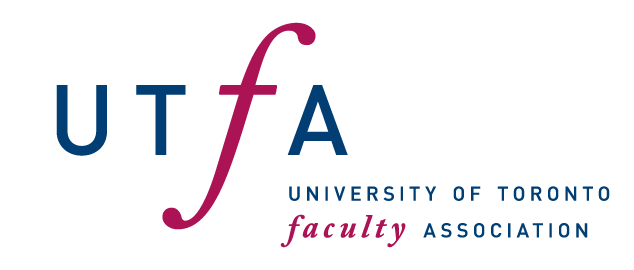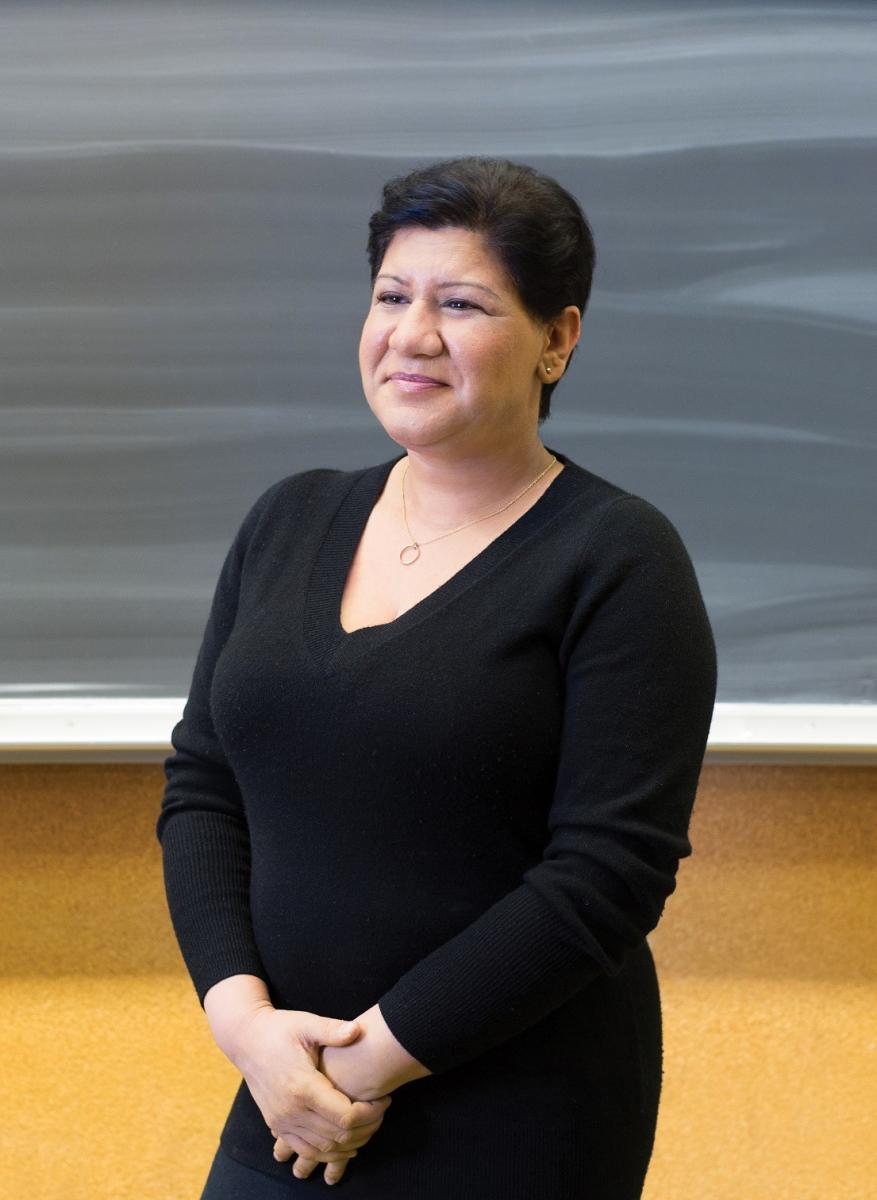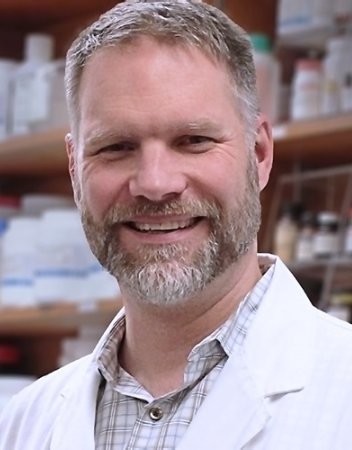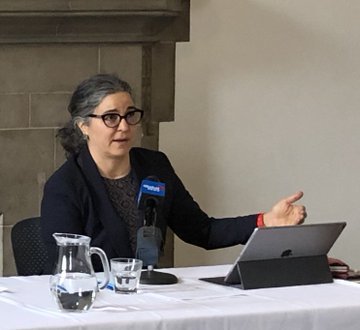2021 Academic Citizenship Award Recipients
|
|
|
|
|
|
|
|
|
|
|
|
Message from the President
UTFA is proud to deliver the 2021 Academic Citizenship Award to the faculty members from the Dalla Lana School of Public Health, and particularly Professors Arjumand Siddiqi, Ashleigh Tuite, David Fisman, James Scott, Jeffrey Siegel, and Paul Bozek. These UTFA members were nominated for effectively advocating for the adoption of best practices in health and safety during the global COVID-19 pandemic.
As the nominations made clear:
Collectively and individually, [these faculty members] have made an extraordinary contribution to the health, safety, and well-being of the University of Toronto through [their] work on public health during the ongoing COVID-19 pandemic. [They] advocated for principled policy and practice, shared [their] expertise with an international community, and expertly and generously provided advice to faculty, librarians, staff, students, and members of our broader community. [They] also advised UTFA on the best approaches to protecting the University community from COVID-19, all while conducting and disseminating [their] own world-class research and scholarship during a once in a century public health crisis.
These faculty members dedicated countless hours to advising UTFA, appearing on UTFA’s behalf at the University-wide Central Health and Safety Committee, and speaking at numerous public panels and media interviews regarding COVID-19. The contribution of the award recipients has benefitted both the university and the broader community, as many award recipients played a role in advising provincial and federal governments about their pandemic response.
For example, several of the award recipients served on Ontario’s COVID-19 Science Advisory Table, a group of expert scientists and health system leaders who analyze emerging evidence to inform the Ontario government’s pandemic response.
The contributions of these professors and colleagues from the Dalla Lana School of Public Health cannot be understated. The Association was extremely well-served by the contributions of this group, which undergirded UTFA’s advocacy for the adoption of public health best practices. In some areas, the University of Toronto Administration improved their practices as a direct result of UTFA’s advocacy based on the professors’ scientific expertise. We were and are safer because of the contributions of these hard-working scholars, and UTFA is deeply honoured to count them among its members.
To cite a remarkable example, in the Spring of 2020, we learned from these experts that COVID-19 was able to spread via aerosols and that protections must be put in place to address the risk of airborne transmission. This understanding, which many in the scientific community were slow to accept, enabled UTFA to achieve early improvements to the University’s masking policy, and ventilation and filtration. While those improvements didn’t go as far as we might have liked, they went far beyond what was in place in many other institutions. Similarly, through the guidance of these experts, the Administration came to recognize (and remedy) the risk of Legionella bacteria in the University’s water systems. We could not have achieved these protections had we not been informed about the evolving science surrounding COVID-19 by this group of experts. Simply put, their contributions saved lives.
-

 Arjumand Siddiqi is a Professor and Division Head of Epidemiology at the Dalla Lana School of Public Health, where she holds the Canada Research Chair in Population Health Equity. Her recent research has focused on (a) evaluating the impact of specific social policies on population health and health inequalities, (b) examining the causes of contemporary trends in population health and health inequalities, (e.g., the recent unusual decline in life expectancy in the liberal welfare states, the widening of racial and socioeconomic health inequalities in many societies, the social distribution of the COVID-19 pandemic) and, (c) reflections on concepts and methods used in health inequalities research.
Arjumand Siddiqi is a Professor and Division Head of Epidemiology at the Dalla Lana School of Public Health, where she holds the Canada Research Chair in Population Health Equity. Her recent research has focused on (a) evaluating the impact of specific social policies on population health and health inequalities, (b) examining the causes of contemporary trends in population health and health inequalities, (e.g., the recent unusual decline in life expectancy in the liberal welfare states, the widening of racial and socioeconomic health inequalities in many societies, the social distribution of the COVID-19 pandemic) and, (c) reflections on concepts and methods used in health inequalities research.  Ashleigh Tuite is an Assistant Professor in the Epidemiology Division at the Dalla Lana School of Public Health. She is an infectious disease epidemiologist and mathematical modeler. Professor Tuite’s research program focuses on the use of mathematical modeling and other quantitative methods to improve decision-making for emerging, re-emerging, and endemic communicable diseases.
Ashleigh Tuite is an Assistant Professor in the Epidemiology Division at the Dalla Lana School of Public Health. She is an infectious disease epidemiologist and mathematical modeler. Professor Tuite’s research program focuses on the use of mathematical modeling and other quantitative methods to improve decision-making for emerging, re-emerging, and endemic communicable diseases. David Fisman is a Professor in the Epidemiology Division at the Dalla Lana School of Public Health. His research interests include (a) the epidemiology of infectious diseases including community- and hospital-acquired pneumonia, epidemiology of enteric infections, sexually transmitted infections, laboratory datasets as epidemiological resources, infections diseases, seasonality, environment, and climate change, (b) mathematical modeling and simulation and, (c) decision analysis and cost-effectiveness analysis.
David Fisman is a Professor in the Epidemiology Division at the Dalla Lana School of Public Health. His research interests include (a) the epidemiology of infectious diseases including community- and hospital-acquired pneumonia, epidemiology of enteric infections, sexually transmitted infections, laboratory datasets as epidemiological resources, infections diseases, seasonality, environment, and climate change, (b) mathematical modeling and simulation and, (c) decision analysis and cost-effectiveness analysis.  James Scott is a Professor in the Occupational and Environmental Health Division at the Dalla Lana School of Public Health. His research interests include biological hazards in occupational and environmental hygiene, molecular detection of bioaerosols, bioaerosol sampling technology, DNA sequence-based studies of human and environmental microbiomes, housing and health, biosafety and biosecurity, environmental exposures and allergic disease, biodeterioration and biodegradation, environmental microbiology, evolutionary biology and ecology of microfungi.
James Scott is a Professor in the Occupational and Environmental Health Division at the Dalla Lana School of Public Health. His research interests include biological hazards in occupational and environmental hygiene, molecular detection of bioaerosols, bioaerosol sampling technology, DNA sequence-based studies of human and environmental microbiomes, housing and health, biosafety and biosecurity, environmental exposures and allergic disease, biodeterioration and biodegradation, environmental microbiology, evolutionary biology and ecology of microfungi.  Jeffrey Siegel is a Professor of Civil Engineering at the University of Toronto and a member of the university’s Building Engineering Research Groups. He holds joint appointments at the Dalla Lana School of Public Health and the Department of Physical & Environmental Sciences. His research interests include healthy and sustainable buildings, ventilation and indoor air quality in residential and commercial buildings, control of indoor particulate matter, the indoor microbiome, and moisture interactions with indoor chemistry and biology.
Jeffrey Siegel is a Professor of Civil Engineering at the University of Toronto and a member of the university’s Building Engineering Research Groups. He holds joint appointments at the Dalla Lana School of Public Health and the Department of Physical & Environmental Sciences. His research interests include healthy and sustainable buildings, ventilation and indoor air quality in residential and commercial buildings, control of indoor particulate matter, the indoor microbiome, and moisture interactions with indoor chemistry and biology.  Paul Bozek is a Professor in the Occupational and Environmental Health Division at the Dalla Lana School of Public Health. His research interests include quantitative exposure measurements to toxic materials, chemical exposure control technology, work population chemical exposure profiles, asbestos, and silica.
Paul Bozek is a Professor in the Occupational and Environmental Health Division at the Dalla Lana School of Public Health. His research interests include quantitative exposure measurements to toxic materials, chemical exposure control technology, work population chemical exposure profiles, asbestos, and silica. 